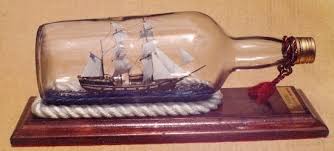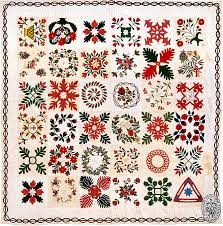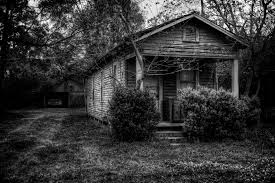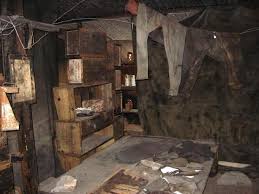George Hutto stared at the marble top of the lamp table beside him. After a minute or two, he again picked up the society page of the Times and read the brief lines:
Mr. Jacob I. Caswell,
Proprietor of Caswell Mercantile Company, Orchard Knob,
Announces that his Daughter,
Adelaide Margaret Caswell
is
Engaged to be Married
to
Mr. Zebediah Acton Douglas
late of Chattanooga, recently moved to Murfreesboro.
The Nuptials are Announced for
Sunday, the Twenty-fifth of June,
in the Year of Our Lord,
Eighteen Hundred and Ninety-Nine
When he finished the second reading, he started to wad the paper and hurl it into the fireplace. Instead, he crumpled it weakly in his lap and allowed it to fall onto the floor beside his chair. He stood up and paced toward the bay window, his hands clasped behind his back.
He had known Addie Caswell from the time they were kids in Sunday school class. He could never remember giving a plugged nickel for any other girl. He’d carried her books, endured her older brothers’ taunts, and sent her Valentines inscribed with pencil scrawls.
Well, it didn’t matter now. She was engaged to this glad-talking Douglas fellow, and that was that. No sense crying over spilled milk. He stared through the lace curtain. It was a gray day. Dry leaves scattered across the side yard, hurried along by the north wind. He shook his head, turning away from the window. Shoving his hands into his pockets, he slouched up the stairs toward his workroom.
His mother appeared at the bottom of the steps. “George, dear? You coming down to lunch, honey?”
He paused, glancing over his shoulder, then continued up the steps. “No, ma’am. Not hungry right now.”
He heard her heels clomp on the wood floor, going toward the kitchen. “Mamie, just set two places,” she said.
George entered his workroom and closed the door behind him. He went over to his table and picked up the painted hull of the frigate. Just about dry. He could go ahead and rig the masts. Placing the hull gently on the table, he took a paintbrush in one pudgy fist and a pair of tweezers in the other.
With a knuckle, he shoved his spectacles higher onto the bridge of his nose. He dipped the tip of the brush into the glue pot, then took the toothpick-sized mainmast in the tweezers. He applied two tiny dots of glue at equal distances from either end of the piece, then took another pair of tweezers and picked up the spar that bore the mainsail. He placed the spar on the mast, then reached for the topsail spar. Now he had to let the glue set for a few minutes.

If Addie truly loved the Douglas fellow, there wasn’t much he could do about it. He’d never been one to force himself on folks or to act a fool, and he sure wasn’t about to start. She was a grown woman, after all.
And besides, he was too plain, too dependable. Shoot, he knew it as well as anybody else. Most likely, Addie wanted someone with more … well, more gumption. Zeb Douglas was easy with words, never met a stranger. He could talk to you five minutes and you’d feel like you’d known him back to his grandparents on both sides. He just had that way with folks. Put you right at ease, and kept you there.
Compared to Zeb Douglas, George didn’t make much of a show. He was just good, old, dependable George Hutto; never got in anybody’s way, never said a cross word. Kind of fellow who’d never embarrass you. No surprises. No excuses.
He picked up the bottle that would soon house the frigate. As he’d done maybe fifteen times already, he compared the size of the neck opening to the width of the spars. He already knew they’d fit; he’d measured them four times before cutting them. That was the joke of the whole thing: the spars were far too narrow in proportion to the masts—completely out of whack. But once inside the bottle, safe behind the concealing curvature of the glass, no one would notice. Inside, the sails would belly forever out, full of nonexistent air. His frigate would sit on his or someone else’s shelf, going nowhere at full sail across a motionless sea. George set the bottle down and folded his hands in his lap. He sat for awhile. He scratched his face and sighed. The glue on the mast was about dry enough now. He bent back to his work.
*******
Addie folded the table linens and patted them down into the cedar chest with the other things. She tallied the wedding gifts she had received so far: three hand-crocheted tablecloths, five place settings of silverware, several sets of serviettes and other assorted linens, and a brace of good, sturdy kitchen knives, each with a penny tied to the handle.
And of course there was the album quilt presented to her by the ladies of the Methodist Church. Made in the same style as the Baltimore album quilts Addie had seen pictured in Butterick’s Quarterly Delineator, it was a floral quilt in dark blues and deep reds and rich greens on a background of white muslin. Each of the ladies had appliquéd a block and embroidered her name at its lower left corner. There were flower baskets, bird-and-flowers, rose trees, and other designs Addie had never seen before. The sashing between the blocks and around the border was a walnut brown. Addie ran her hand along the quilt and smiled.
But thinking of the Methodist ladies brought back the worry that had been nagging her like a toothache. She was going to have to decide something pretty soon about the church situation.
When she and Zeb talked, she felt her resistance wilting. It was just too hard to stand up to his constant scriptural salvos. And when she went back to her room and read the passages for herself, they did seem to point the direction Zeb aimed them.
She was coming to the uncomfortable conclusion that she’d never really known what she believed about the Bible. She’d just sort of gone along, without really studying for herself. Oh, she had been involved, even been a member of the Epworth League. But, somehow, she never got around to really looking into things on her own.
And there was no doubt in her mind that Zeb would insist they ought to go to the same church after they were married. “It just isn’t right, Addie,” he’d stress, “for a husband and wife to be divided over religion. A home ought to be of the same mind on that, ‘cause if it isn’t, why, there’s no telling what else it’ll be divided on.”
That was true, she knew, but she was a little bothered by how the unity of their impending home was being achieved. Once, when she had asked him to come with her to the Methodist church on Sunday, he got an uncomfortable expression on his face and wouldn’t look her in the eye.
“Addie, I … well, I can’t, honey. We’ve talked about what the Bible says, and … ”
He wouldn’t say anymore, but he didn’t need to. Zeb couldn’t find anything about the Methodist Church he could use as a basis for compromise. She’d have to do all the compromising. But he seemed so convinced he was right.
As did Papa. She was stretched between the two of them like muslin on a quilting frame.
Quick steps pounded on the porch below her bedroom window, and someone rapped on the front door. “Is anybody home?” said a woman’s voice. “Oh, Lordy, please be home, and hurry!” It was Martha Overby, who lived just around the shoulder of Tunnel Hill from their place, and her voice sounded to be unraveling with alarm. Addie rushed to the landing and down the stairs. She flung open the door. “Martha, what’s—”
“Oh, Miss Caswell, please come quick! A rider just come up from the docks and said Perlie’s johnboat washed ashore down below the Suck. They’re a-looking for him right now, but it’s just me and the babies at the house, and—” Her voice caught and she put a hand to her mouth.
Addie slammed the door and leapt down the steps, clutching her skirts with one hand. “You get on down there, Martha. I’ll stay with your children until you get back.” She didn’t wait to see if Martha complied. She was already rounding the corner of the house and dashing uphill into the tree line.
Addie ran through the woods and over the shoulder of the hill. Soon she wished she had remembered to grab a shawl, at least. The cold air sliced into her breastbone as she dodged around fallen trunks and undergrowth.
She got to the small house about five minutes later, her breath coming in pants. The Overbys lived in a ramshackle shotgun house that squatted at the foot of Tunnel Hill, squeezed between the river road and the railroad tracks of the Chattanooga-Atlanta line. Addie could hear the children howling almost before she rounded the bend of the hill, and as she neared the doorway of the tar-papered shack, she could smell the odor of stale coal smoke, bacon grease, and unwashed bodies. Two of the older children were standing just outside the front door, bawling as they stared at Addie. A dirty-faced toddler sat in the doorway and whimpered. And Addie was almost sure she could hear an infant’s cries coming from somewhere inside the house.
She knelt down and pulled the two older ones to her. “Hush, now, y’all,” she said. “You’ve got to help me take care of the little ones. You hear me? Your mama’ll be here in a little bit, but she sent me to stay with you till she gets back. It’ll be all right, now; just settle down.” They calmed, a little at a time. The toddler put out a hand, and Addie pulled her close. Inside, the baby was still raising Cain.
“We better go inside. You’ll catch a bad chill in this cold air. Does your mama have any milk for the baby?” The older boy, who looked about ten, shrugged his shoulders and dug the scarred toe of a brogan into the dust.
Addie disentangled herself from the grimy arms and fingers of the three children. She went into the house, fighting the urge to hold her breath, and beckoned them after her. She closed the rickety door against the chill.
A coal stove stood in the middle of one of the long walls; it doubled as a cooking oven. There were a few cane-bottomed chairs scattered about, all looking mostly the worse for wear. Pine planks laid across two sawhorses formed the kitchen table, and a few tack quilts, made out of feed sacks and backed with some of the homeliest homespun Addie had ever seen, spilled off the single shuck-mattressed bed onto the floor. The baby lay in a tangle of one of these, still squalling to beat blazes. Addie went to him.
“Now, you shush,” she said. “You’ve just about kicked all your covers off, you little dickens.” She scooped up the baby and tucked the quilt back around him. She rocked him in her arms as she scanned the shack for something to quiet him down.
She felt a tug at her skirts. The older girl, a finger stuck shyly in her mouth, held toward her a bottle half-full of milk.
“Thanks, honey! Where was it?”
The girl inclined her head toward the nearest chair. “Over there,” she said in a barely audible voice. “Maw was feeding him when the man come.”
Addie plugged the bottle into the tiny boy’s mouth, and he pulled hard at the contents. “Well, nothing wrong with your appetite, at least,” she said.
“They said Paw drowned in the Suck,” the boy said, his chin beginning to quiver again.
“Now, that’s not what your mama told me,” Addie put in. “He just wasn’t with his boat, is all. He’s probably fine. I bet they’ll find him. You don’t go giving yourself such notions, all right? You’ve got to be brave for your sisters and your little brother.”
The toddler, her eyes as round as teacups, edged closer to where Addie was seated. Lord, please let these children’s daddy be all right, she prayed silently as the baby squirmed, fussed once or twice, and settled back into his consumption of the milk.
The sound was faint, and at first Addie thought she’d just imagined it. But gradually, she realized a man was approaching the house. She began to make out the words of the song he was singing at the top of an untuneful voice:
Hot corn, cold corn, bring along a demijohn
Hot corn, cold corn, bring along a demijohn
Hot corn, cold corn, bring along a demijohn
Farewell Uncle Bill, see you in the mornin: yes, sir!
Seconds later, the boy’s head jerked up from the place he slumped beside the bed. “That’s Paw!” he shouted, springing up and racing across the room to the door. He flung it open and dashed outside. “Paw! Paw!”
Through the door, Addie could see Perlie Overby striding toward the house, bellowing at the top of his lungs. He paused as the boy dashed toward him.
“Hold on there, boy! You’re liable to knock—”
The two went down in a tangle as the son flung himself at his father.
“Paw, the man said you was drowned! He said you was drowned in the Suck!”
“Well, I ain’t,” said Perlie, “so git up offa me before I jerk a knot in your tail!”
By this time the older girl was rushing outside, and the toddler was standing in the door, once again whimpering in confusion.
“I wish somebody’d shut the door,” Addie said, left in the chair with the nursing baby. Feeling the cold draft, she pulled the dirty quilt closer about the slurping infant.
The three Overbys shuffled closer to the open doorway. “Well, I was settin’ a new trap down there on the other side of Moccasin Point, by Brown’s Ferry,” Perlie said to his tightly clinging offspring. “Right on the bank is where I was. The rocks is real mossy and slick right there at the edge, and just as I was a-leanin’ over to pull back the jaws of the trap, my foot slipped. I went down like a ton of bricks, made the biggest splash you ever heard, and my foot kicked the gunwale of the boat and knocked her just far enough out for the current to catch her, and by the time I could stand up and dump all the fish outta my pockets—whoa, now! Who’s this here?”
Perlie stood in the doorway, one damp boot on the threshold. Peering into the dark interior of the shack, he straightened. “Well, I’ll be! I believe that’s Miss Addie, yonder!”
“Hello, Mr. Overby. Your wife came to the house and was real scared, so I told her I’d come tend the children while she went down to the docks.”
Perlie had swept his battered plug hat off his head as he came inside. He held it in both hands at chest level, like a shield. “Well, now, Miss Addie, that was mighty kind of you, mighty kind. I shore appreciate you watchin’ the young ‘uns, but this here old dirty place ain’t a proper—”
“She told us you was all right, Paw,” the boy said. “She told us all the time you was all right.” He aimed an admiring look at Addie.
“Well, course I was all right,” said Perlie, crumpling his hat between his fists. “Just got a little wet, is all. And I reckon I’ll have to walk all the way down to the Suck now and get my johnboat back. And a course I lost a half-day’s work and still got traps to check, but— Scuse me, Miss Addie! There I go, lettin’ my mouth run off again, and you settin’ there without a coat on. Boy! Go shut that door!”
“I’m all right, Mr. Overby, really.”
“Now, Miss Addie, you just let me have that little ‘un there, and you can go on back to your house, you hear?”
“Oh, I don’t mind—”
“Nope. I’m back now, and I can tend my own young ‘uns.”
“But—you’re wet! Don’t you want to get some dry clothes on?”
Perlie shrugged and grinned. “Why, land’s sakes, Miss Addie! These here’s the only britches I got. They’ll dry out directly. Come on, now, hand him over here.”
“Paw, did you really catch fish in your pockets when you fell in?” the boy said.
“Why, course I did! But they was all too little to keep, so I put ‘em back in till they was growed up some. Move on over now, boy, so Miss Addie can hand me your little brother.”
 Addie rose and offered the baby to his father, careful to keep the bottle in the hungry mouth. Perlie murmured and whispered to the tiny boy as he took him. Addie would never have suspected that the rough, tobacco-stained man could show such tenderness toward anything, but as he rocked and coddled the baby in his arms, she knew she wasn’t needed any longer. Perlie sidled over to the chair and eased himself into it. The boy moved in beside him on one side, and the older girl on the other, while the toddler came between his knees and laid her head on his grimy, wet pant leg. Addie could see the baby’s eyelids flutter, then droop closed.
Addie rose and offered the baby to his father, careful to keep the bottle in the hungry mouth. Perlie murmured and whispered to the tiny boy as he took him. Addie would never have suspected that the rough, tobacco-stained man could show such tenderness toward anything, but as he rocked and coddled the baby in his arms, she knew she wasn’t needed any longer. Perlie sidled over to the chair and eased himself into it. The boy moved in beside him on one side, and the older girl on the other, while the toddler came between his knees and laid her head on his grimy, wet pant leg. Addie could see the baby’s eyelids flutter, then droop closed.
“Well, if you’re sure you don’t need me,” she whispered.
“No, you go ahead on,” Perlie said in a low voice. “And take one a them quilts with you. That north wind’s colder than gouge.”
“No, I’ll be all right,” she said, glancing at the stained quilts piled on the floor. “I’ll just leave, then. Bye.”
“Bye, Miss Addie. I’m much obliged to you,” he said.
As she walked toward the door, she heard him singing softly, but no more tunefully than before:
Upstairs, downstairs, out in the kitchen
Upstairs, downstairs, out in the kitchen
Upstairs, downstairs, out in the kitchen
See Uncle Bill just a-rarin’ and a-pitchin: yes, sir.
Hot corn, cold corn, bring along a demijohn …
*******
This post is a chapter from the novel Sunday Clothes, by Thom Lemmons. Sunday Clothes will soon be available for purchase as an e-book at www.homingpigeonpublishing.com